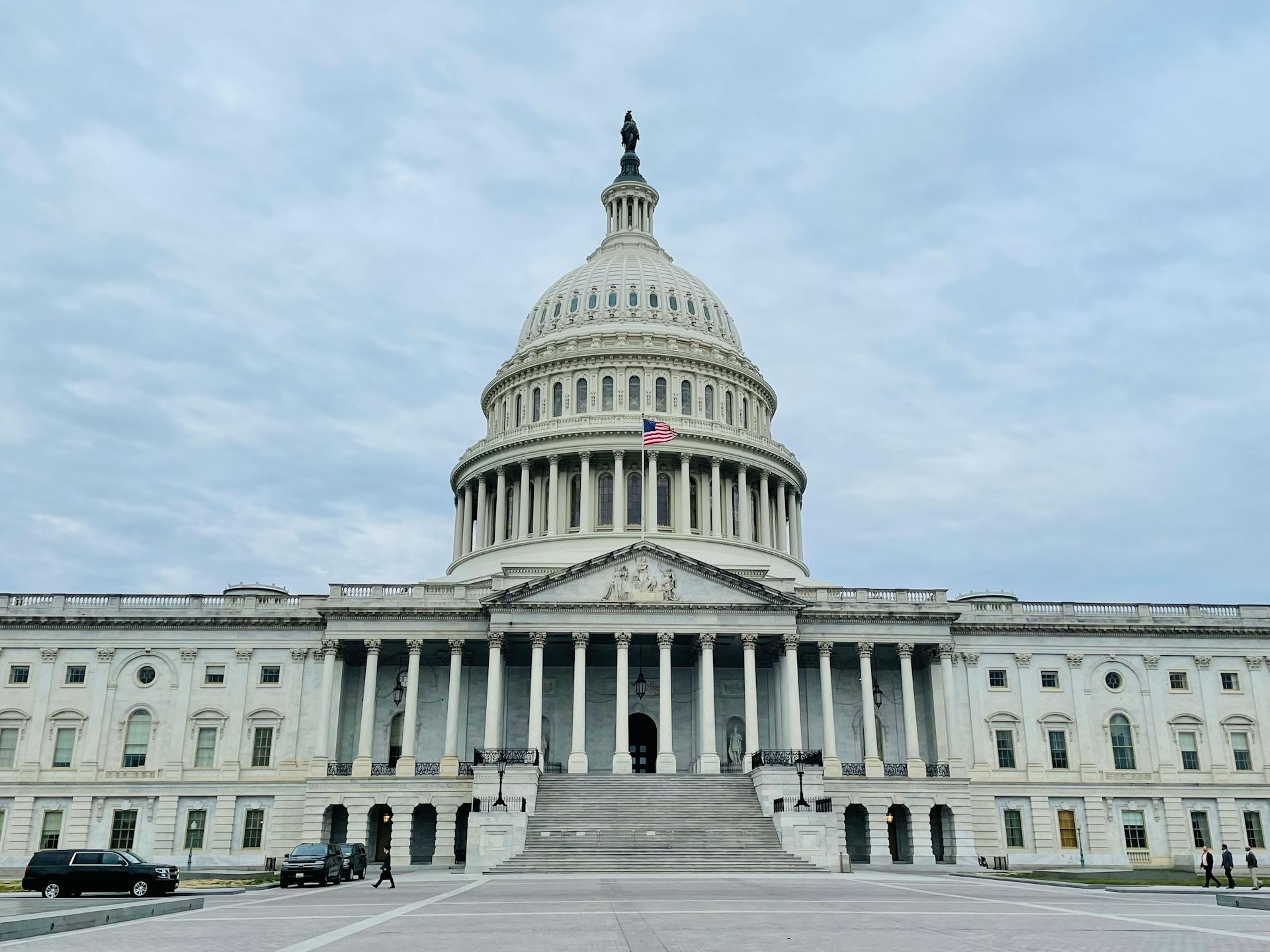Featured Blogs

The Trump Administration is poised to reshape American health care policy with two high-profile and polarizing figures: Robert F. Kennedy Jr., nominated to head the Department of Health and Human Services (HHS), and Mehmet Oz, the celebrity doctor tapped to lead the Centers for Medicare and Medicaid Services (CMS). Their starkly different approaches to health care—prevention versus medicine—set the stage for potential clashes on key issues. One such issue, Medicare coverage of Ozempic, highlights the philosophical divide between these two leaders and serves as a litmus test for the future of U.S. health care.
Medicare and Medicaid for GLP1-s
Ozempic, a GLP-1 receptor agonist originally developed to treat Type 2 diabetes, has rapidly gained attention for its weight-loss benefits. For many, the drug represents a breakthrough in managing obesity, a major driver of chronic diseases in the U.S.
The Biden administration proposed to expand Medicare coverage of GLP-1s beyond its use to treat type 2 diabetes or cardiovascular disease. If the Trump administration finalizes the rule, CMS estimates 7 percent more Americans would have access to the drug. But Medicaid coverage remains limited, with only 13 state Medicaid programs paying for GLP-1s for obesity treatment,
GLP-1s headline the government’s list of medicines that will be subject to price negotiations over the next year as part of the Inflation Reduction Act. In addition to traditional Medicare, these drugs, including Ozempic, will also be subject to price negotiations,
The Ozempic Debate: A Microcosm of Medicine vs. Prevention
Dr. Mehmet Oz has championed the potential of Ozempic and other GLP-1s, calling the drug ‘massively beneficial’ for improving cardiovascular health and overall quality of life. He sees expanding access to drugs like Ozempic through Medicare and Medicaid as a critical step in addressing obesity and its associated costs.
In stark contrast, RFK views Ozempic with deep skepticism. He has labeled it a ‘scam’ and insists that the true solution to obesity lies in lifestyle changes, such as eating healthier and exercising more. In interviews, he has criticized the pharmaceutical industry for profiting off what he considers preventable health issues, stating that Americans have been ‘misled’ into seeking quick fixes rather than addressing the root causes of their health problems.
RFK ’s Prevention-First Agenda
As head of HHS, RFK brings a prevention-focused vision to health care policy. He has long advocated for systemic reforms, including stricter regulations on processed foods, food additives, and environmental toxins. He aims to address obesity by overhauling the U.S. food system, rather than relying on pharmaceutical interventions. His skepticism extends beyond the GLP-1s to the broader role of the pharmaceutical industry, which he accuses of prioritizing profit over public health.
RFK plans to reallocate resources within HHS, shifting the focus of agencies like the National Institutes of Health (NIH) from infectious diseases to chronic disease prevention. However, implementing such sweeping reforms will be no easy task. HHS is a massive bureaucracy, and many of his proposals—such as limiting fluoride in drinking water or promoting the value of unpasteurized or “raw” milk—also fall under the purview of other federal agencies, like EPA and CDC. Institutional inertia and budgetary constraints may further hinder his efforts.
Dr. Oz Supports New Innovations
Mehmet Oz’s tenure at CMS will likely emphasize medical innovation and treatment. A vocal supporter of GLP-1s like Ozempic and Wegovy, Oz views such drugs as essential tools for improving public health outcomes. He has advocated for making GLP-1 inhibitors widely accessible and believes Medicare and Medicaid coverage of these drugs would yield significant long-term health benefits.
Oz’s enthusiasm for medical solutions extends to telehealth and digital health technologies, which he sees as critical for increasing access to care. His leadership may prioritize policies integrating these technologies into Medicare and Medicaid programs, potentially creating new avenues for managing obesity and other chronic conditions.
The Ozempic debate is likely the first of many policy clashes between RFK Jr. and Oz. As CMS Administrator, Oz could advocate for expanding Medicare coverage of Ozempic, while RFK Jr., as head of HHS, may push back in favor of prevention-focused alternatives
The focus may shift toward public health campaigns promoting lifestyle changes, potentially delaying access to pharmaceutical interventions for those who need them. On the other hand, if Oz’s perspective dominates, Medicare and Medicaid could see expanded pharmaceutical coverage, but at significant financial cost and without addressing the underlying causes of obesity.
Conclusion
The leadership of RFK Jr. and Mehmet Oz at HHS and CMS marks a pivotal moment for American health care. The Ozempic debate encapsulates the broader philosophical divide between prevention and medicine, offering a glimpse into the challenges and opportunities that lie ahead. Whether their approaches can coexist—or whether one will prevail—remains to be seen.
The Trump administration’s approach to Ozempic may offer a glimpse into U.S. health care policy for the next four years. How will HHS and CMS address chronic diseases, allocate resources, and balance prevention with treatment? How will Medicare and Medicaid navigate the institutional and budgetary constraints while pursuing transformative change?
Moreover, the dynamic between RFK Jr. and Oz may set the tone for how the Trump Administration handles other contentious health care issues, from vaccine policies to public health emergencies. Will their contrasting visions lead to innovation and compromise, or will their differences hinder progress?

At 12 PM on January 20, 2025, Donald Trump joins Grover Cleveland as the second President to serve two non-consecutive terms in office. As he returns to office, there is already a lot on his plate, as well as the plates of the Republican majorities in the House and Senate. All we can say is bon appétit and welcome to the Week Ahead!
The Administration
The incoming Trump administration is reportedly planning a major immigration enforcement action in Chicago. Cities such as Washington, D.C., Philadelphia, L.A., and Denver could also be sites for early immigration enforcement actions.
Trump’s early actions on immigration will set the tone for his second term and could give us a hint into how he will act on matters where immigration and health care intersect. While much of the attention will be on deportations of those implicated in serious crimes, other executive actions in the coming days could provide insights as to how federal health care programs, such as Medicaid and the Affordable Care Act, might be utilized in the effort to combat illegal immigration. For example, Trump could revive his 2019 rule to include the use of Medicaid as a qualifying factor to declare someone as inadmissible to the United States as a “public charge.” In addition, the new administration could also try to tie Medicaid funding to states to cooperation with federal immigration officials.
The Senate
Although a hearing has yet to be announced, RFK Jr. has continued hitting the Hill and meeting with senators to build support for his nomination to run the Department of Health and Human Services (HHS).
Kennedy’s push comes as some outside groups continue their campaigns to urge opposition to Kennedy’s confirmation. One group, 314 Action, announced the next phase of an advertising campaign targeting GOP senators that the group thinks could be key in determining if Kennedy can get across the finish line. The senators they are targeting include Mitch McConnell (R-KY), Lisa Murkowski (R-AK), Joni Ernst (R-IA), Bill Cassidy (R-LA), Susan Collins (R-ME), Thom Tillis (R-NC), John Curtis (R-UT), John Cornyn (R-TX), and Mike Rounds (R-SD).
In addition to the nomination process, Sen. Bill Cassidy (R-LA) has scheduled the first meeting https://hearing/of the Senate Health, Education, Labor, and Pensions (HELP) in the 119th Congress on January 21. The executive session will be when the Committee adopts its rules for the 119th Congress. If you are looking for hints on what Sen. Bill Cassidy’s (R-LA) chairmanship of the Committee will look like, look no further than the press release which highlights, among other things, his work to pass pharmacy benefit manager (PBM) reform and reduce the cost of prescription drugs in the 118th Congress.
The House
The House continues to buzz with talk of budget reconciliation and what could be considered as a part of the one (or two) bill effort. A menu produced by the House Budget Committee outlines a litany of policy options that could be considered as part of reconciliation legislation. Health care policies on that list include:
- Revoking the eligibility of non-citizens without legal status to participate in federal health programs
- Medicare site neutrality
- Limiting Obamacare premium subsidies
Keep in mind this list is meant to be a comprehensive list of possible options, so just because something is on this list does not mean it will be included in a reconciliation bill. However, it demonstrates the vast array of options that Republicans may consider as they plan to move forward with the reconciliation process.
Of course, Representatives have other choices regarding what policies to pursue. We are hearing that Ways and Means Committee Chair Jason Smith (R-MO-8) is looking to keep up the Committee’s focus on rural health care after being disappointed in the number of rural health bills that the Committee considered but were not passed into law in the last Congress. This list includes legislation allowing critical access hospitals that have shut down to reopen as rural emergency hospitals and legislation to ensure more graduate medical students complete their residency in rural hospitals.
Also, this week, the House Veterans’ Affairs Health Subcommittee will hold an oversight hearing on the Department of Veterans Affairs (VA) Community Care Program and Community Care Network on January 22.
There You Have It
The Washington Commanders defeated the Detroit Lions on January 18, earning them their first trip to the NFC Championship in 33 years. Only one more round until we get to the Super Bowl. (Diazepam) Who do you want to head to the big game? Let us know! Make it a great week!

We have been hearing a lot from Elon Musk and Vivek Ramaswamy lately, the chosen co-leads of the President-Elect Trump’s Department of Governmental Efficiency (DOGE). We have even watched Musk take down a government funding extension bill almost single-handedly. But what is DOGE, and what will it do?
What is DOGE?
The idea of a federal agency dedicated solely to improving governmental efficiency may sound like a bureaucratic paradox. (The department of redundancy department, anyone?) However, in some circles, there are growing concerns about inefficiencies, waste, and redundancy in government operations. The new Department of Governmental Efficiency (DOGE) is purported to make government processes more effective, transparent, and cost-efficient.
DOGE is an envisioned federal agency that would act as a central body to evaluate, enhance, and coordinate the performance of various government functions. Its mission would be to identify areas where improvements can be made in operational efficiency, streamline bureaucratic processes, reduce wasteful spending, and ensure that government agencies are delivering services effectively. The goal is for DOGE to serve as a hub for coordinating efforts to eliminate inefficiencies rather than creating new programs or regulations.
In essence, DOGE would be a “management consultancy” for the U.S. government, aimed at rethinking how federal agencies operate on a day-to-day basis. The department would rely on a mix of data analytics, performance audits, process optimization, and employee feedback to identify opportunities for improvement across a wide range of government functions, from military procurement to social services delivery.
Why Does DOGE Seem to be Needed?
Proponents of DOGE base their arguments on the idea that the U.S. federal government, with its vast size and complex operations, is often plagued by inefficiencies. Several issues have sparked calls for systemic changes in the way the government operates: ·
- Wasteful Spending: According to various reports from the Government Accountability Office (GAO), the federal government loses billions of dollars annually through inefficiencies, such as outdated systems, redundant services, and unnecessary administrative overhead. In a time of growing national debt, addressing waste is seen by many as critical.
- Bureaucratic Red Tape: Federal and State government agencies often face criticism for their cumbersome processes, slow decision-making, and excessive regulation. Citizens and businesses alike find themselves bogged down by layers of approval, paperwork, and delays.
- Fragmented Services: The federal government operates hundreds of departments and agencies, each with its own mandates, processes, and systems. This fragmentation can lead to duplication of efforts, inefficiency, and a lack of coordination across agencies, reducing the quality and speed of public service delivery.
- Public Perception: A recent Pew Research Center poll found that trust in the federal government is at an all-time low, mainly because of frustration with bureaucratic inefficiency and perceived waste. Citizens increasingly want a government that delivers results quickly and effectively.
Given these concerns, DOGE would address the need for a department that acts as a “watchdog” over government operations, identifying areas for reform, and implementing changes that would improve performance, reduce redundancy, and ultimately save taxpayer dollars.
Opportunities for DOGE in Health Care
If DOGE were to focus on health care, there are several areas where DOGE could look at to improve efficiency and deliver better results for patients, providers, and taxpayers alike:
- Reducing Waste in Medicare and Medicaid: Medicare and Medicaid are two of the largest federal health care programs, and although they are popular, they are often criticized for inefficiencies such as fraud, abuse, and excessive administrative costs. DOGE could conduct audits to identify waste areas and recommend changes to improve cost-effectiveness while maintaining or improving the quality of care.
- Simplifying Health Care Administration: One of the biggest inefficiencies in federal health care is the complexity of the systems. Billing, reimbursement, and reporting requirements differ across programs, creating confusion for providers and delays in care. DOGE could advocate for simplified billing systems, electronic health records (EHR) interoperability, and a streamlined process for claims and reimbursements.
- Improving Inter-Agency Coordination: Federal health care programs operate across multiple agencies, including the Department of Health and Human Services (HHS), Centers for Medicare & Medicaid Services (CMS), and the Department of Veterans Affairs (VA). DOGE could help facilitate better communication and coordination between these agencies, ensuring that health care services are provided efficiently and that patients are not caught in bureaucratic red tape.
- Leveraging Technology: Technology has the potential to significantly improve health care delivery, yet many federal health care programs still rely on outdated systems. DOGE could push for the adoption of advanced technologies such as AI for predictive analytics or telemedicine for broader access to care, improving both efficiency and patient outcomes.
- Enhancing Transparency: DOGE could play a key role in improving transparency in federal health care programs. By publicly reporting on cost savings, wait times, and the effectiveness of different programs, DOGE could build public trust in government health care services and create an environment where agencies are held accountable for their performance.
Pitfalls and Challenges
While DOGE could have a significant impact on improving health care efficiency, there are several challenges that must be considered:
- Resistance from Health Care Stakeholders: Health care providers, insurance companies, and even governmental health agencies might resist changes proposed by DOGE, especially if these changes threaten their existing practices or financial interests. Resistance from powerful health care lobbyists could slow down or block meaningful reforms.
- Political Gridlock: Health care is a highly politicized issue, and efforts to reform federal programs often face strong opposition. Even if DOGE identifies areas for improvement, political polarization could prevent any support. Also, and more importantly, Congress may be hesitant to delegate its authority to a new department, especially when it comes to decisions that affect millions of constituents.
- Lack of Direct Legislative Power: Without the authority to pass laws or implement changes directly, DOGE’s ability to enforce reforms would be limited. (See larger discussion below.)
- Complexity of Federal Health Care Programs: U.S. health care is a labyrinth of federal regulations, state-based programs, private insurance systems, and various health care providers. This complexity presents a significant challenge for DOGE to navigate and reform, as any proposed changes would need to account for local differences and legal constraints.
- Initial Implementation Costs: While DOGE’s long-term goal is to reduce costs, the initial effort to set up the department, assess health care programs, and implement reforms could be expensive. The government would need to balance short-term investments with long-term savings to justify the creation of DOGE.
How Will DOGE Get Anything Done Without Congressional Authority?
One of the most significant hurdles DOGE would face is its lack of direct legislative authority. Congress holds the power to dictate federal policy, and any attempt by DOGE to overhaul operations could be met with resistance from lawmakers. However, there are ways in which DOGE could make an impact even without direct Congressional approval:
- Executive Orders: The President could establish DOGE through an executive order, mandating the department to improve government efficiency. While this may not grant the department the power to enforce its findings directly, it could set a tone for change and demonstrate the administration’s commitment to reform.
- Collaboration with Congress: DOGE could work closely with lawmakers to craft policies that incentivize government agencies to implement efficiency recommendations. By showing clear benefits in terms of cost savings and service delivery, DOGE could build political support for broader reform efforts.
- Public Advocacy: By focusing on transparency and publishing the results of its efforts, DOGE could garner public support for reforms. Public pressure could, in turn, push Congress to adopt some of its recommendations.
In addition to alternative approaches, Musk and Ramaswamy have brought in a “closer” to ensure tasks are completed effectively. The addition of Brad Smith to the DOGE team is expected to enhance the team’s focus on efficiency. His unique combination of private and government experience positions him to identify opportunities for improvement effectively. Mr. Smith, is an entrepreneur, Rhodes Scholar, and former head of the Center for Medicare & Medicaid Innovation (CMMI) in the last Trump Administration (Side Note: His latest company, CareBridge, just announced its sale to Elevance Health in a deal worth $2.7 billion.) He will likely be able to push through health care reforms with less resistance than those considered “D.C. outsiders.”
Conclusion
The Department of Governmental Efficiency (DOGE) could offer an innovative solution to address the inefficiencies plaguing the federal government for decades. While it faces significant challenges, including resistance from entrenched interests and a potential lack of authority, its potential to improve government performance, save taxpayer money, and restore public trust is considerable. It’s all up to politics now—whether DOGE can become a transformative force in modernizing the U.S. federal government, or is this all just political theater?

In the final days of his presidency, President Joe Biden is expected to propose a bold move to limit nicotine levels in traditional cigarettes. The anticipated regulation aims to reduce addiction and smoking-related health issues, honoring a long-standing pledge to tackle tobacco use and public health risks.
The proposal, which could be announced within days, focuses solely on traditional cigarettes, excluding e-cigarettes and nicotine replacement products such as patches and lozenges. If finalized, it would mark a significant effort to reduce nicotine levels to make cigarettes minimally or non-addictive. Public health advocates have said this action would be a historic step toward reducing addiction, particularly among young people who are most vulnerable to starting smoking.
“Making cigarettes less addictive would save millions of lives,” said Erika Sward, Assistant Vice President of National Advocacy for the American Lung Association. Studies have shown that dramatically reducing nicotine content could prevent millions of future smokers. For example, a 2018 Food and Drug Administration (FDA) study estimated that such a regulation could result in 16 million fewer smokers by 2060, with even greater impacts over the coming decades.
This proposal represents a continuation of Biden’s earlier efforts to combat tobacco addiction, including a push to ban menthol cigarettes. While that pledge remains unfulfilled, the nicotine cap reflects the administration’s commitment to addressing smoking as the leading cause of preventable death in the U.S., killing more than 480,000 Americans annually.
However, the proposal faces significant hurdles. Critics argue that reducing nicotine levels could lead to unintended consequences, such as smokers compensating by consuming more cigarettes or turning to a black market for higher-nicotine products. Additionally, the time-intensive process of finalizing such a regulation means its implementation could take years and will depend on the incoming administration’s priorities. Judging how the second Trump Administration may act when it comes to tobacco regulation is no easy task. On the one hand, during the first Trump Administration, the FDA restricted the sale of certain flavored e-cigarettes over concerns that they were being marketed in a way that appealed to minors. He also signed legislation that increased the federal minimum age to purchase tobacco to 21 years of age. On the other hand, during the presidential campaign, Trump said he would “Save vaping again.”
Public health advocates remain optimistic about the potential impact. Yolonda C. Richardson, president of the Campaign for Tobacco-Free Kids, called the proposal “game-changing,” emphasizing its potential to fight chronic diseases like cancer and cardiovascular disease.
As President Biden’s term ends, this initiative underscores his administration’s desire to leaving a lasting public health legacy. The proposed nicotine limits could shape the future of tobacco regulation in the United States. However, as President Biden prepares to leave office and President-elect Trump prepares to assume it, the future is as cloudy as a smoky room.




